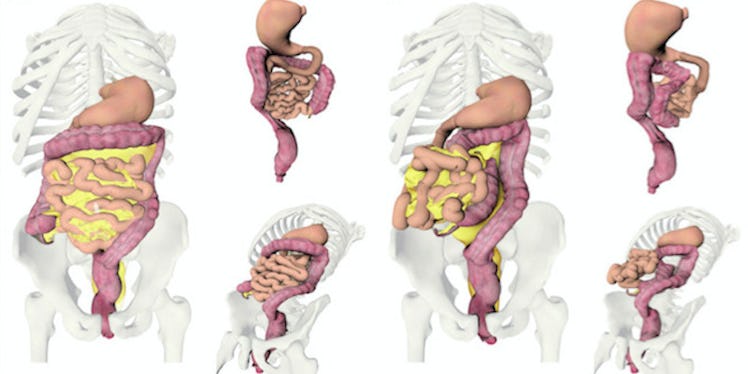
Scientists Discovered A New Organ, So Forget Everything You Thought You Knew
New year's resolution: Understand the world better because everything is a lie.
Scientists have found a new organ -- and its discovery could re-write what we thought we knew about the human body.
It's called the mesentery, and you can find it sneakily located in your digestive system.
The thing is basically a double-fold of the peritoneum, which is the lining of the abdominal cavity.
Previous research of the mesentery ruled it as mixed bag of fragmented structures. But a new study has confirmed it's one separate organ.
Its function is unclear. In fact, the organ is such a mystery scientists don't even know if it's part of the intestinal or cardiovascular system.
However, identifying it as its own organ is the first and most important step in providing new research into how its role affects the body and what part it could play -- if any -- in combating disease.
Part of the new study, published in The Lancet, reads,
Clarification of mesenteric structure has raised many questions, but has simultaneously provided a platform from which to direct future investigations across natural and applied sciences. Various anatomical and other features of the mesentery need to be detailed. Contiguity of lymphatic, neurological, vascular, and connective tissue means that the mesentery occupies a central position. Whether the mesentery should be viewed as part of the intestinal, vascular, endocrine, cardiovascular, or immunological systems is so far unclear, as it has important roles in them all. Its effects are being investigated at haematological, immunological, endocrine, metabolic, and other levels. Many, but not all, organs have a distinct functional unit. The functional unit of the mesentery is unknown, and whether a distinctive cell type is primarily responsible for its functionality should be investigated.
The find is so groundbreaking, medical textbooks are currently being updated to include the new information.
Citations: The Lancet